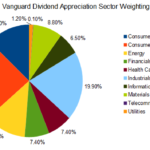A buddy of mine has been making a killing in college housing for years. Unlike what has happened to the residential real estate market, the college housing market has been largely insulated from both the initial bubble and the subsequent crash. Why? Well, valuations are based on actual cash-flows (real money) and not speculation, flipping and no-doc loans like the mess we got into with residential real estate. In essence, if a certain unit is return X cash per year, it can be reasonably valued at Y dollars. In general, the cost of college housing has been increasing at or more than the rate of core inflation for years pretty steadily. There’s no shortage of college students requiring off-campus housing if you pick the right university. Zoning laws and insider dealings make it a bit of a tough nut to crack, but once you’re in, you’re in. So in the end, my friend is making 20% on cash and continues to roll equity from one property to the next. He’s building a small empire – the one you used to hear about with condo flipping in Miami…but this one won’t pop unless universities start going belly up.
In thinking through how I could participate in this seemingly handsome reward per modest risk without being an insider myself, I came across a great proxy – a Real Estate Investment Trust (REIT list of dozens of tickers referenced there) based on college campus housing. There are a couple of these out there but I identified what I felt to be the best in class – American Campus Communities Inc (ACC). I like ACC for several reasons, enough to actually buy some for my self-directed IRA. I prefer holding dividend payers in this account since they’re protected from taxes and I love the benefit of the overall dividend return equating to close to half of the total stock market returns over time as indicated graphically there.
Key Performance Measures of ACC:
- Yield: 4.5% – The dividend payouts have continued uninterrupted for years, even through the financial collapse last year. Granted, share prices declined, as did all asset classes outside of Treasuries, but they also recovered quickly. Meanwhile, investors have continued to enjoy yields exceeding the 2% yield on the S&P500 and 3% on the longest duration Treasuries. While one could pursue even higher yields with muni bond funds and other high yield asset classes, there are significant risks that may have yet to manifest themselves in the current valuations. Admittedly, the best utility ETFs due convey similar benefits of stability and high yield.
- Performance YTD: ACC is up 7.4% vs. 2.7% for the S&P500 (SPY) – This is impressive in that with a market with virtually no dispersion and alpha tough to find, it has greatly outpaced the market at large. This, all with a higher dividend to boot.
- Performance During Crash of 2009: ACC was down 40% vs 47% for the S&P500 (SPY) – While 40% is nothing to write home about, it demonstrates lower volatility and risk than the market at large. I looked at the 1 year period leading up the March 2009 lows before the market capitulated and rebounded.
- Performance Since Inception Aug 20, 2004: ACC has gained 72% since inception vs. 7.5% for the S&P500 (SPY) – very strong long-term performance. In a “lost decade” and a period of near flat returns from 2004, ACC delivered a very respectable 72% plus dividends.
- Performance vs. REIT Index ETF: When comparing to the iShares REIT Index ETF (IYR), ACC outperformed strongly as well, at the same 72% since inception vs. 3.8%.
Disclosure: Long ACC











{ 1 comment… read it below or add one }
I knew of people who were making loads of money buying up real estate near campuses since I had given it serious thought when I was in college myself but I never knew college housing-specific REITs existed.
Definitely worth the consideration since there is rarely a low supply of college students looking for cheaper off-campus housing. The low volatility and sustainable dividend yield is enticing.